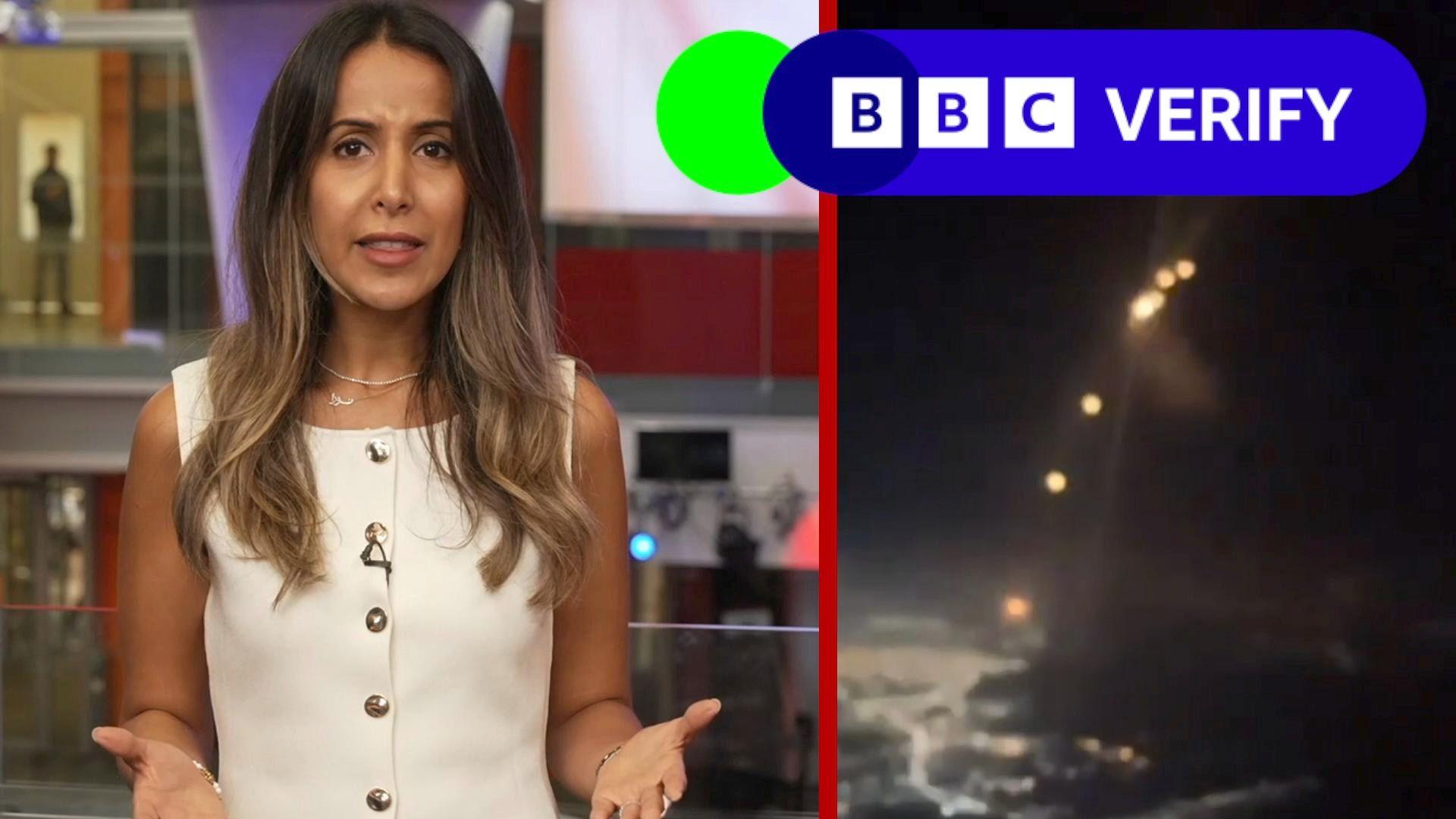Nine killed in Israeli air strike on central Beirut
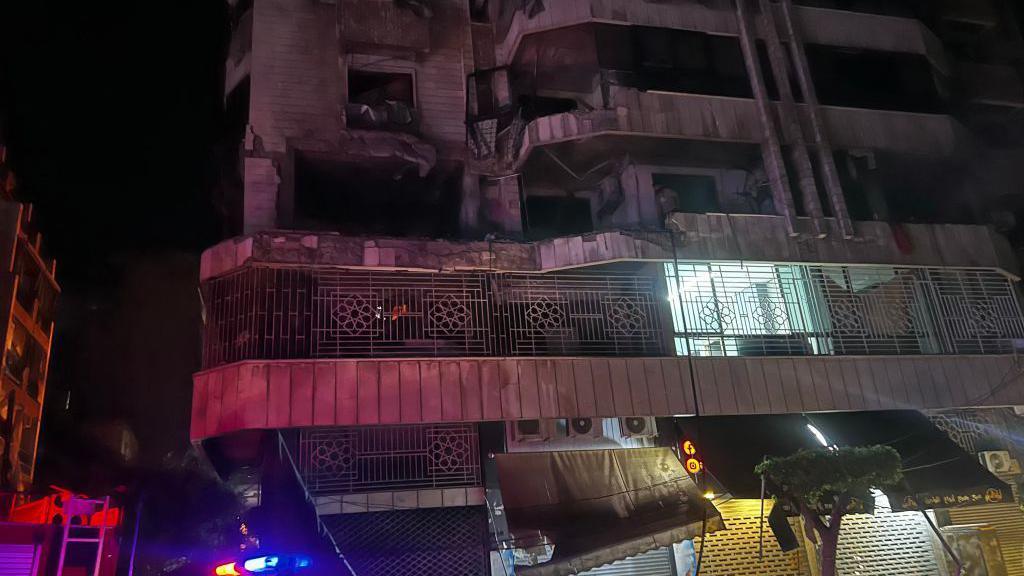
- Published
Nine people have been killed and 14 injured in an Israeli air strike on a building in central Beirut, Lebanese officials have said.
The multi-storey block in Bachoura housed a Hezbollah-affiliated health centre, which Israel's military said was hit in a "precision" attack.
This is the first Israeli strike close to Beirut's centre - just metres away from Lebanon's parliament. There were five other air strikes overnight against targets in the southern suburb of Dahieh.
It comes after the Israel Defence Forces (IDF) said eight soldiers had been killed in combat in southern Lebanon, its first losses since the start of ground operations against the Iran-backed armed group Hezbollah.
Large explosion in Beirut as IDF says it conducted 'precise' strike
Hezbollah said it had destroyed Israeli tanks during the fighting and insisted it had enough men and ammunition to push back the forces.
Earlier, the IDF announced that more infantry and armoured troops had joined the operation seeking to dismantle what it called “terrorist infrastructure” in Lebanese border villages.
In the latest overnight strikes, three explosions were heard in Dahieh, in the city's southern suburbs - with a fourth closer to the centre.
There were two further air strikes in Dahieh, which came after the IDF warned people living nearby that it was targeting what it said were facilities belonging to Hezbollah in the area of the city known to be its stronghold.
Before the overnight air strikes, Lebanon's health ministry said 46 people had been killed and 85 wounded in Israeli bombings in the last 24 hours, without differentiating between civilians and combatants.
A number of those killed in the central Beirut strike were rescue officers and paramedics, according to Beirut's civil defence.
It also emerged a US permanent resident from the state of Michigan was among those killed in recent Israeli air strikes on Lebanon.
Kamel Ahmad Jawad, 56, was in the country to care for his elderly mother, according to The Detroit News.
His death was confirmed by a White House official, who said: "His death is a tragedy, as are the deaths of many civilians in Lebanon."
Hezbollah has been weakened after two weeks of Israeli strikes and other attacks that have killed more than 1,200 people across Lebanon and displaced around 1.2 million, according to Lebanese authorities.
Israel has gone on the offensive after almost a year of cross-border hostilities sparked by the war in Gaza, saying it wants to ensure the safe return of residents of border areas displaced by Hezbollah attacks.
Hezbollah is a Shia Islamist political, military and social organisation that wields considerable power in Lebanon. It is designated as a terrorist organisation by Israel, the US, the UK and other countries.
Leaving 'only choice' say sisters on Beirut flight
- Published2 October 2024
'The country is lost': Fear and uncertainty in Lebanon as Israel invades
- Published1 October 2024
Israel-Hezbollah conflict in maps: Tracking the violence in Lebanon
- Published27 November 2024
On the second full day of their ground invasion into Lebanon, Israeli troops encountered Hezbollah fighters for the first time.
The Israel Defense Forces (IDF) said in a statement on Wednesday that soldiers backed by aircraft had “eliminated terrorists and dismantled terrorist infrastructure through precision-guided munitions and close-range engagements” in several southern Lebanese areas.
Later, the IDF announced that eight troops had been killed in action. Most were commandos from the elite Egoz and Golani Reconnaissance units.
Hezbollah said its fighters had fired ani-tank missiles at Israeli commandos, killing and wounding dozens during clashes early on Wednesday in one border village.
It also said that other troops were targeted with explosives and gunfire on the outskirts of Kafr Kila, and that three Israeli Merkava tanks were destroyed by missiles near Maroun al-Ras.
Hezbollah has spent years building infrastructure in southern Lebanon that includes extensive underground tunnels. It also has thousands of fighters, who know the area well.
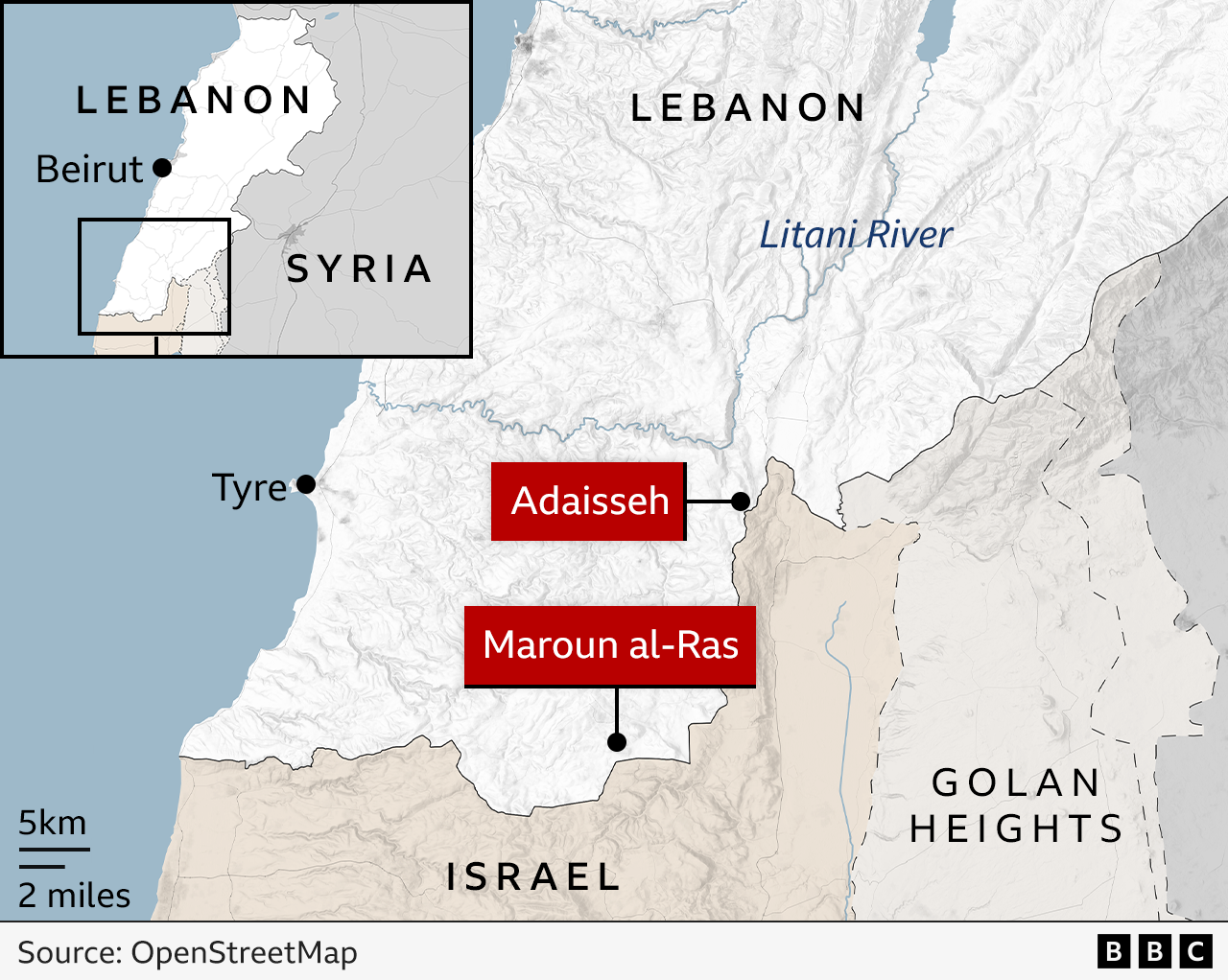
Paying tribute to the eight soldiers, Prime Minister Benjamin Netanyahu said they had fallen ”in the midst of a tough war against Iran’s axis of evil, which seeks to destroy us”.
“This will not happen, because we will stand together, and with God’s help, we will win together,” he added.
Israeli air defences were also in action again a day after they repelled the vast majority of the more than 180 ballistic missiles launched by Iran towards Israel on Tuesday night in retaliation for the Israeli air strike in Beirut last Friday that killed Hezbollah leader Hassan Nasrallah and a top Iranian commander.
More than 240 rockets were fired from southern Lebanon towards northern Israel throughout Wednesday, according to the IDF.
Netanyahu insists that the ground offensive in Lebanon will degrade Hezbollah’s capability and push its fighters back, eventually allowing about 60,000 Israelis to return to their homes near the border.
Meanwhile US President Joe Biden said he did not support an Israeli retaliatory strike on Iranian nuclear sites. He added that the US "will be discussing with the Israelis what they're gonna do" in response to the Iranian barrage.
Lebanon: BBC reporter at scene of Beirut missile strike
Related topics
- Published2 October 2024
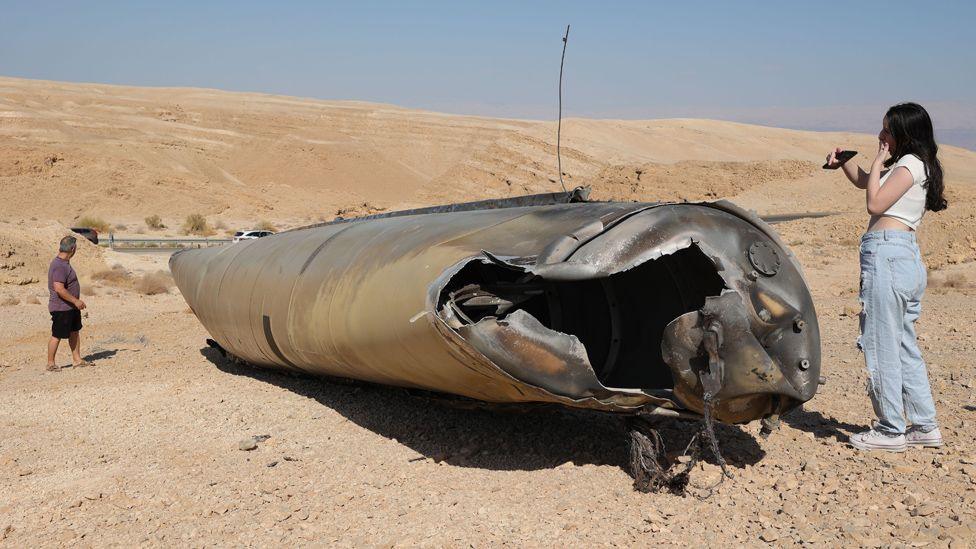
- Published2 October 2024
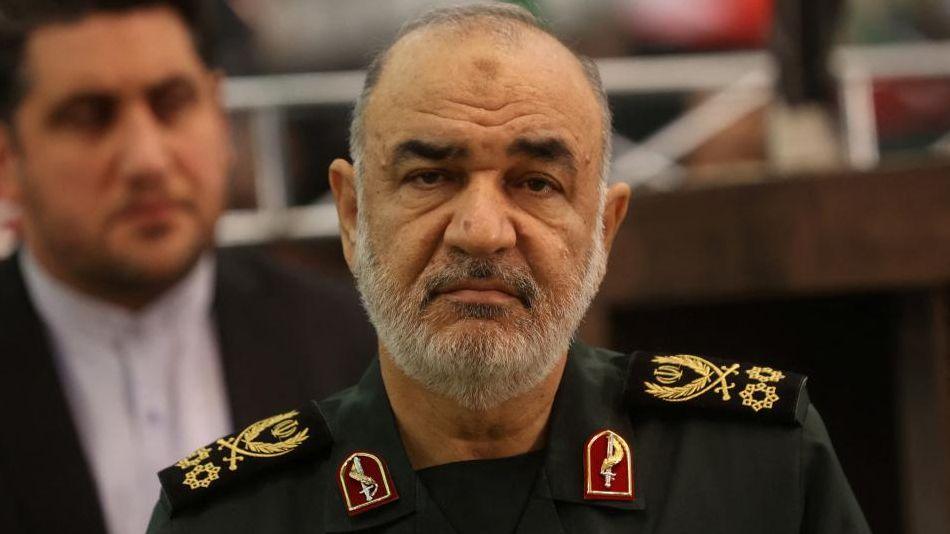
- Published2 October 2024
